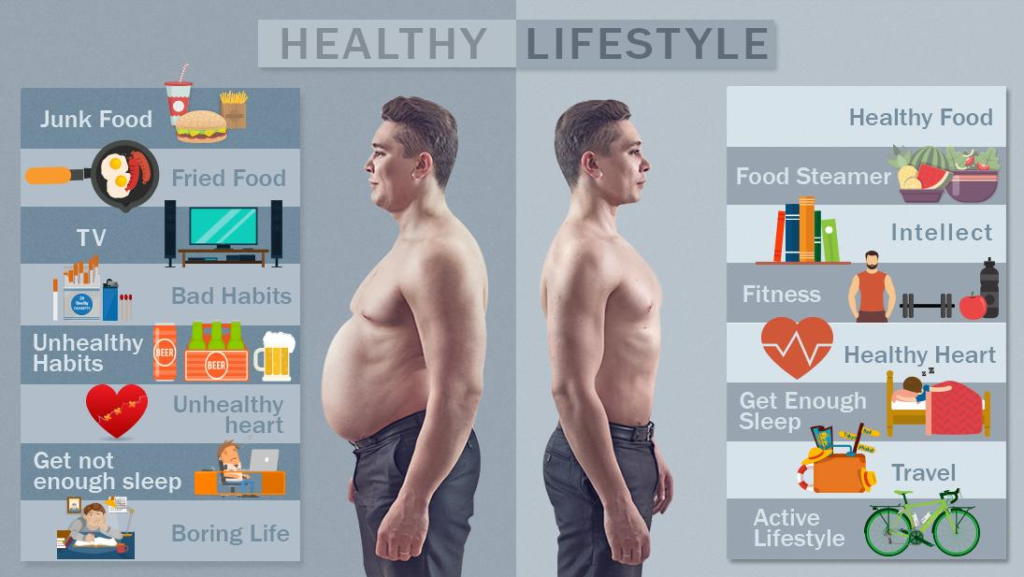
In a world where fitness and health trends constantly evolve, many people are overwhelmed by various exercise programs, diet plans, and health advice available. The sheer volume of information can make it challenging to know what works. Enter the minimalist approach to fitness and health—a philosophy centered on simplifying routines, focusing on quality over quantity, and eliminating unnecessary distractions. This approach suggests less can be more when achieving lasting health and fitness.
What Is Minimalism in Fitness and Health?
Minimalism in fitness emphasizes efficiency, focusing on essential movements, shorter workouts, and streamlined nutrition. The goal is not to eliminate effort but to maximize results with fewer inputs. It aligns with the Pareto Principle (80/20 rule), which suggests that 80% of results come from 20% of efforts.
This approach challenges the notion that more is always better. Instead, it emphasizes:
- High-quality exercises over quantity.
- Time-efficient workouts that fit into any schedule.
- Balanced nutrition without overly restrictive diets or calorie obsession.
- Consistency and sustainability as the foundation for long-term health.
The Science of “Less Is More”
Research strongly supports the effectiveness of minimalist approaches to fitness and health:
- Short, Intense Workouts Work: Studies, such as one published in The Journal of Physiology (2012), found that High-Intensity Interval Training (HIIT) improves cardiovascular health and metabolic function as effectively as longer sessions. A mere 20 minutes of well-structured activity can yield significant benefits.
- Focus on Recovery Enhances Performance: Research in Sports Medicine (2018) highlights that overtraining without adequate rest can lead to burnout, injury, and diminished results. Minimalist routines prioritize recovery, ensuring the body has time to adapt and improve.
- Habit Formation Through Simplicity: Behavioral science, as discussed by James Clear in Atomic Habits, emphasizes that simplifying tasks increases adherence. A minimalist approach reduces decision fatigue, making it easier to stay consistent.
The Benefits of a Minimalist Fitness Approach
The minimalist approach to fitness and health offers several key benefits:
- Simplicity and Focus: You can focus on the essentials with fewer distractions. The minimalist approach allows you to concentrate on the basic principles of exercise and nutrition without becoming overwhelmed by an ever-growing list of things to do. Whether it’s a short but intense workout or preparing simple meals, minimalism helps you focus on quality and consistency.
- Sustainability: Many fitness trends or extreme health regimens require more work to maintain long-term. They may require a lot of time, equipment, or specialized food. Minimalism, on the other hand, prioritizes small, sustainable changes that become part of your lifestyle. This makes it easier to stay committed and see long-term results.
- Improved Mental Health: Fitness and health aren’t just about physical and mental well—being. Overcomplicating fitness routines or dieting can cause unnecessary stress. By simplifying your approach, you reduce the mental load, improving overall mental health. The minimalist approach encourages mindfulness and balance, which can help combat anxiety and burnout.
- Time and Resource Efficiency: A minimalist fitness routine can get the same or even better results in less time. Focusing on compound exercises targeting multiple muscle groups means shorter, more effective workouts. Regarding nutrition, simplicity in meal planning reduces the time spent thinking about what to eat. This efficient approach can free up time for other areas of your life, making it easier to stick to a healthy lifestyle.
- Increased Motivation and Consistency: Minimalism strips away unnecessary complexity and provides clear goals. You’re more likely to stick with your routine when you feel free of the number of options or the effort required. Small, achievable goals encourage progress without frustration, fostering motivation and consistency.
Key Principles of Minimalist Fitness and Health
A minimalist approach to fitness and health is not about cutting corners or taking shortcuts. It’s about focusing on the fundamentals and embracing what truly matters. Below are the core principles that define a minimalist approach:

Focus on Functional Movements
The minimalist fitness approach emphasizes functional, compound exercises like squats, push-ups, deadlifts, and lunges, mimicking everyday movements. These exercises target multiple muscle groups, improving strength, mobility, and balance while maximizing efficiency. By reducing injury risk and enhancing overall body function, this method offers a practical, effective alternative to isolated exercises.
Keep Workouts Short and Intense
Minimalist fitness embraces efficiency, exemplified by High-Intensity Interval Training (HIIT). These 15-30 minute sessions alternate intense exercise with brief rests, delivering comparable or superior results to longer workouts. HIIT boosts heart rate, burns fat, and enhances cardiovascular fitness, making it perfect for busy individuals or those seeking shorter, impactful routines.
Prioritize Consistency Over Perfection
Minimalism emphasizes progress through consistent, small actions over drastic efforts. Regular habits, like working out three times a week or eating healthily most of the time, outperform sporadic extremes. By setting achievable goals and maintaining steady effort, you prevent burnout and sustain motivation. Over time, these small, sustainable actions compound, leading to lasting improvements in fitness and overall health.
Simplify Your Diet
A minimalist diet prioritizes simplicity and balance, focusing on whole, nutrient-rich foods like fruits, vegetables, lean proteins, whole grains, and healthy fats. It avoids processed foods, extreme restrictions, and fad diets. This approach emphasizes real, unprocessed ingredients in moderation, promoting nourishment and health without complex meal plans or exotic trends.
Prioritize Sleep and Recovery
Recovery is vital for fitness and health. A minimalist approach emphasizes rest, relaxation, and self-care alongside exercise. Sleep allows the body to heal, rebuild, and function optimally. Stress management, stretching, and meditation further enhance recovery. Prioritizing these practices ensures peak physical and mental performance, making recovery an essential component of a balanced, healthy lifestyle.
Minimize Stress
Health isn’t just about working out and eating right. Mental and emotional well-being are just as important. The minimalist approach advocates reducing unnecessary stress, which can negatively impact physical and mental health.
Simplifying your fitness routine, eating balanced meals, and embracing mindfulness can help reduce stress levels. Focusing on the present moment and avoiding the pressure of perfection can improve your overall well-being.
How to Get Started with a Minimalist Fitness and Health Routine
If you’re interested in adopting a minimalist approach to fitness and health, here’s a simple guide to get started:
- Assess Your Current Routine: Evaluate your fitness and health habits. Identify areas where you need to be more concise. Are you spending too much time at the gym? Do you have a complicated meal plan that’s difficult to stick to? Once you recognize where you can simplify, you can make adjustments accordingly.
- Focus on Compound Movements: Incorporate functional exercises like squats, deadlifts, push-ups, and lunges into your workout routine. These movements engage multiple muscle groups, making them time-efficient and effective. Aim for full-body workouts 2-3 times a week.
- Adopt a Balanced, Simple Diet: Simplify your meals by focusing on whole foods. Include a variety of fruits, vegetables, lean proteins, and healthy fats in your diet. Avoid processed foods, sugary snacks, and restrictive diets. Meal prepping can help you stay on track with your nutrition.
- Make Sleep a Priority: Aim for 7-9 hours each night to support muscle recovery and overall health. Create a sleep-friendly environment by minimizing distractions and establishing a consistent sleep schedule.
- Practice Mindfulness: Incorporate stress-relieving practices like meditation, yoga, or deep breathing into your daily routine. These can help calm your mind, reduce anxiety, and promote well-being.
Be Consistent: Finally, consistency is key. Stick with your simple routines and adjust as needed, but aim for something other than perfection. Small, consistent changes will lead to lasting improvements.
Practical Tips for Adopting a Minimalist Approach to Fitness and Health
- Simplify Your Workouts: Focus on full-body, functional exercises targeting multiple muscle groups simultaneously. Incorporate movements like squats, push-ups, lunges, and deadlifts that can be done without equipment or with minimal gear (such as dumbbells or resistance bands).
- Limit Your Gym Time: Rather than spending hours at the gym, aim for shorter, more intense workouts that maximize results in a shorter period. High-intensity interval training (HIIT) or circuit training are excellent options for those with limited time.
- Prioritize Whole Foods: Build your diet around whole, nutrient-dense foods, such as fruits, vegetables, lean proteins, nuts, seeds, and whole grains. Avoid processed foods and complex, restrictive diets. eInstead, focus on creating a balanced and sustainable eating routine.
- Focus on Quality Sleep: Never underestimate the importance of sleep. The minimalist approach encourages prioritizing rest to allow your body to recover and recharge. Aim for 7-9 hours of sleep per night and maintain a consistent sleep schedule.
- Embrace Rest and Recovery: Incorporate rest days into your workout schedule to allow your body time to recover. Use stretching, foam rolling, or yoga to improve flexibility and reduce muscle tightness.
Helping You Simplify Your Fitness Journey
Less truly is more when it comes to fitness and health. By embracing minimalism, you simplify your path to better health, making it easier to stay on track and achieve your long-term goals. In a world that often glorifies excess, the minimalist approach offers a refreshing, achievable alternative for anyone looking to improve their fitness and overall well-being.
At Aspire Coaching, we specialize in guiding you toward a minimalist approach to fitness and health. Located at Jasmine Building, 3rd Floor Sukhumvit Road, soi 23 Asoke BTS, Sukhumvit MRT, our expert coaches will help you simplify your fitness routine and develop a balanced, sustainable lifestyle. We understand that health is not about perfection but finding a routine that works for you and your body.
If you’re ready to make fitness and health less complicated, contact us today at +66 80 188 4114 to get started on your minimalist fitness journey.

